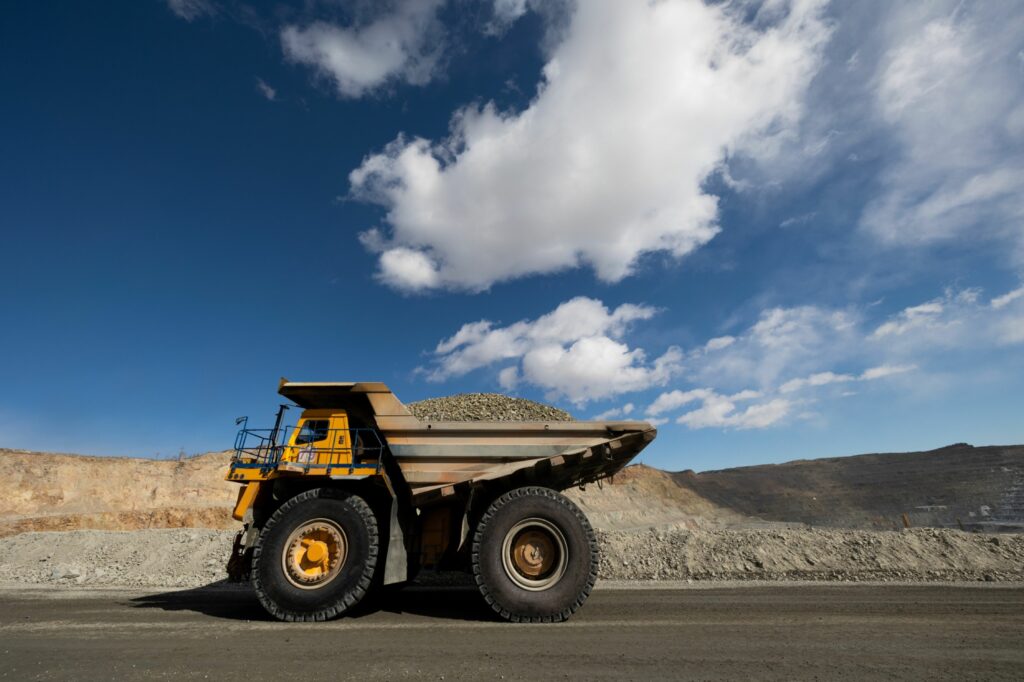Risk aversion could leave major Western mining companies falling behind in the race to exploit Africa's vital raw material reserves, as Middle Eastern oil giants begin to emulate China's long-standing investments in the continent. expensive.
When executives, bankers and government officials gather in Cape Town, South Africa, for the annual African Mining Indaba starting Monday, they will seek to raise the funds needed to advance copper, cobalt, nickel and lithium projects in Africa. Attracting them will be a major topic of discussion.
advertisement
Continue reading below
The problem for large publicly traded miners is convincing board members desperate to retain shareholders, a problem not faced by government-backed funds in the Middle East whose mission is to diversify away from China and oil and gas. .
Mergers and acquisition teams at major mining companies are busy negotiating in countries including the Democratic Republic of the Congo, the world's largest supplier of cobalt and third-largest copper supplier. However, two people with direct knowledge of the matter told Reuters that a potential deal in the country was being held up in the boardrooms of Rio Tinto and BHP Group.
Sources said the board was mindful of shareholders' focus on ESG (environmental, social and governance) concerns and past scandals in countries considered high-risk.
The reserves of countries like Congo are necessary for the transition to clean energy, but must be weighed against political conflicts, the risks of corruption, and the lack of critical infrastructure.
Rio Tinto and BHP are in talks with Ivanhoe Mines to explore a partnership on the Canadian-listed miner's Western Foreland project in Congo, one of the world's richest copper deposits, sources said. Informal consultations were held. They spoke on condition of anonymity because they were not authorized to speak publicly about the issue.
Anglo American is also exploring projects in Congo and has expressed interest in Eurasian Resources Group's (ERG) assets in the country, another person said, as the company seeks to contain costs. It added that the potential deal may not have been completed.
Rio, BHP and Anglo declined to comment.
“Any mining company knows that if it expands into the Democratic Republic of the Congo, it will face tough questions from shareholders,” said Patrick Edmonds, managing consultant for Africa at advisory firm JS Held.
“Large companies in particular need to think very carefully about how they answer investor questions and how they structure their strategies to succeed in the Democratic Republic of the Congo in a way where the returns to shareholders outweigh the risks. There will be.”
Other African countries also have challenges that make many investors nervous.
After almost 30 years of waiting, Rio Tinto has started moving forward with its giant Simandou iron ore project in Guinea. In 2016, the company nearly surrendered its deposits due to the risks of operating in the West African country.
Along with BHP and Anglo, Rio also supports small-scale explorers in Angola, Malawi, Rwanda, Tanzania and Zambia, but the big players are avoiding larger deals.
rising costs
The cost of acquiring the stake has been driven up by growing demand for key minerals needed for the transition to a greener economy, which are abundant in Africa's copper belt, which stretches from southern Congo and Zambia to Botswana.
advertisement
Continue reading below
Oil giants Saudi Arabia and the United Arab Emirates are among the countries most able to take risks.
For Western companies, new challenges in jurisdictions once considered safe are complicating the search for assets.
For example, copper and lithium mining projects in Latin America are threatened by factors such as adverse weather conditions, water shortages, declining ore grades, and regulatory challenges that can sometimes force the closure of existing mines.
Meanwhile, Chinese miners are tightening their grip in Congo and expanding investments across Africa.
MMG received government support late last year. 1208.HK Agreed to spend $1.9 billion to buy Botswana's Kemakau copper mine.
Saudi Arabia, on the other hand, is a “neutral country with a big wallet” and, along with the UAE, “could be a source of financing for Africa,” Ivanhoe CEO Myrna Cloete told Reuters. China's Zijin Mining holds a 39.6% stake in Ivanhoe's Kamoa-Kakula copper mine.
Ivanhoe, founded by billionaire Robert Friedland, said in December that investors interested in helping advance the Western Foreland project range from “large international corporations to sovereign wealth funds.”
Saudi Arabian mining company Marden 1211.SE Established a joint venture with Ivanhoe Electric last year IE.TO for a Saudi mining project. It has also established a fund to procure iron ore, lithium, copper and nickel overseas.
A unit of Abu Dhabi giant International Holding Company (IHC) has agreed to invest $1.1 billion in Zambia's Mopani copper mine in exchange for a 51% stake.
“It is our duty to build on our inherent competitive advantages and build a minerals strategy that extends from Asia to the tip of southern Africa,” Marden CEO Robert Wilt told Reuters. Ta.

